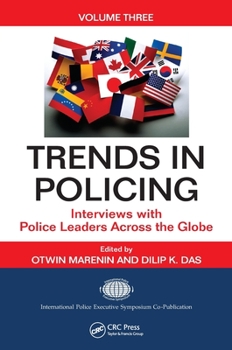Trends in Policing: Interviews with Police Leaders Across the Globe, Volume Three
Select Format
Select Condition 
Book Overview
Several years ago, the Trends in Policing series unveiled insiders' accounts of how police leaders perceive the work they do. These volumes feature interviews with practitioners who speak candidly about their concerns and opinions. They present their evaluations of programs and philosophies that worked and those that did not, describe their conceptions of success and failure, and offer the experiences and insights gained from living the police life. Composed of new interviews, Volume Three continues in the tradition of providing a revealing depiction of diverse police perspectives across a range of different cultures.
The environments in which the subjects of these interviews operate differ vastly in terms of political life, economic resources, social structures, police-community relations, and transnational interactions. Some work in very large organizations; others, in tiny departments. Some are engaged in high-tech environments and others struggle with outdated equipment. Some must contend with routine political interference as others proceed with minimal influence. And some enjoy popular confidence while others are widely despised. The vast range of experiences profiled demonstrates how context significantly determines how police leaders feel about their work.
Sociological studies by academics are plentiful in the policing literature. But police leaders possess an abundance of knowledge that can complement, challenge, and support the more cerebral, scholarly treatments. This thoughtful perspective from the vantage point of individuals in the field enables a balanced understanding of the nuances and dynamics of police culture, elevating the topic to a heightened level of discourse.





